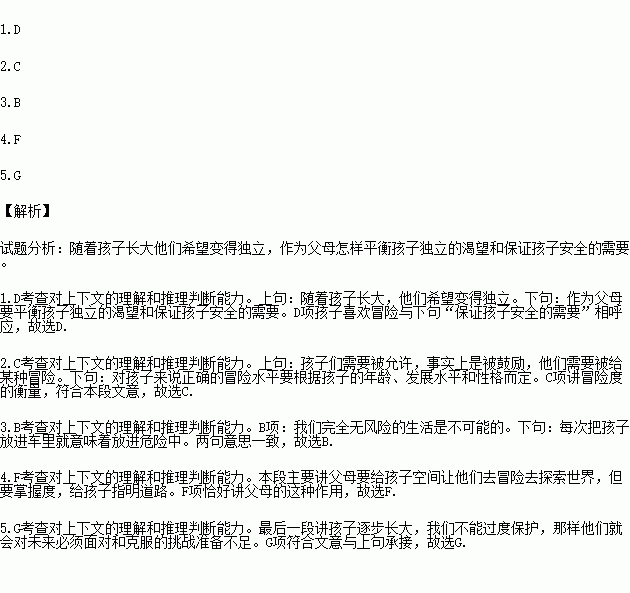题目内容
根据短文内容,从短文后的选项中选出能填入空白处的最佳选项。选项中有两项为多余选项。
As children grow, so does their desire to become independent. 1. . As parents, our job is to find the right balance between kids’ desire for independence and the need to keep kids safe.
Kids need to be allowed, in fact encouraged; they like to be given certain risks. 2. . The right risk level for your child will depend on their age, developmental level, and character. It will change over time, and there are few hard and fast rules that apply to every child.
3. Every time you put your kids in the car you are putting them at risk. It is a fact of life.
So what is a parent to do ? We must encourage them to explore their world while setting clear limits where safety is an issue. 4. . We must let them run, but be prepared to catch them when they fall. We can’t take their steps for them; we can only point out the path.
It’s hard to imagine when they are small, but someday very soon they will be walking , riding a bike, even driving ! 5. .
A. Children do not often want to become independent.
B. It is impossible for any of us to live completely risk-free.
C. The goal for parents is to determine how much risk is appropriate.
D. Often they will become more willing to take risks and try new things.
E. Sometimes it is really tough for parents to encourage their children to be independent.
F. Someday they must face the world without us, and part of our job is to prepare them for that.
G. If we are overprotective, they are likely to grow up ill-prepared to meet and overcome the challenges they must inevitably(不可避免地) face.

